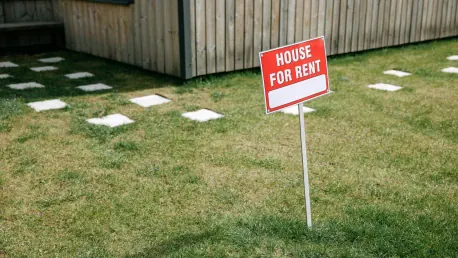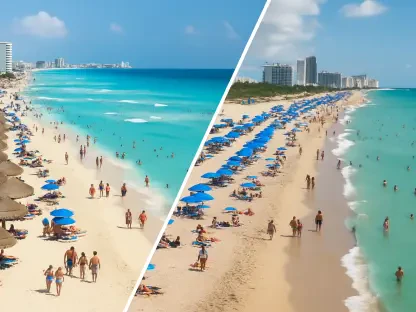The Riverside County Board of Supervisors has recently decided to extend the moratorium on issuing short-term rental (STR) certificates in the districts of Thousand Palms and B Bar H Ranch, effective until February 28, 2026. This decision comes as an effort to provide local officials with adequate time to devise and implement comprehensive regulations targeting the various problems associated with STRs, such as house parties and other sources of disturbance. The moratorium, initially slated to terminate on April 25, was unanimously renewed by the board members.
Addressing Community Concerns
Enforcement Challenges
Board Chairman Manuel Perez, responsible for the Fourth District, highlighted the need for more stringent enforcement measures in response to escalating disturbances. Perez attributed the surge in disruptive activities to recent enforcement of stricter STR regulations in neighboring communities like Desert Hot Springs and Palm Desert, causing a spillover effect. Currently, Thousand Palms and B Bar H Ranch host 68 sanctioned STRs. Numerous properties continue to operate without the requisite permits, leading to fines and increased community tension.
Increased complaints of noise, parking issues, and other forms of disturbance have been a persistent issue for locals. Over the past three years, code enforcement officials have actively penalized violators, issuing fines and cease-and-desist orders. Despite these efforts, Perez stressed that the current fines of $500 to $1,000 are insufficient deterrents. He argued for higher penalties to curb the activities of promoters who continue to profit significantly from these less-than-legal operations, thus compounding the problem.
Regulatory Measures
In October 2022, the regulatory framework for STRs was established through Ordinance No. 927. This ordinance lays out specific provisions to control the operation of short-term rentals, including age requirements for applicants, mandatory separation distances between STRs and existing residences, and a clear accountability protocol for operators and their guests in case of infractions. More stringent measures were introduced in select areas such as Idyllwild-Pine Cove and the Temecula Valley Wine Country to maintain their unique attributes and community standards.
Short-term rentals are defined under this ordinance as residential properties leased for periods not exceeding 30 days, with the minimum duration being two days and one night. These provisions serve as a foundation for ongoing efforts to strike a balance between the interests of residents and those participating in the STR market. The ultimate goal is to ensure the safety and well-being of the community, minimize disruptions, and maintain harmony.
Looking Forward
Development of Permanent Regulations
As the county proceeds with drafting permanent regulations, the possibility remains that the interim moratorium may be lifted earlier, contingent on the passage of a formal ordinance. The aim is to create a regulatory environment that accommodates the needs and concerns of residents while still supporting the viability of the STR market. The moratorium’s extension provides additional time for authorities to deliberate and craft rules that address all facets of the issue comprehensively.
Close monitoring and analysis of the situation will continue, ensuring that the new regulations, once implemented, are effective. Community consultations and stakeholder input remain crucial components of this process, as incorporating feedback from residents and property owners will help formulate balanced and fair policies. The county’s ultimate objective is to mitigate the negative impacts of STRs while fostering an environment conducive to lawful and beneficial rental activities.
Long-term Implications
The ongoing extension of the moratorium reflects Riverside County’s commitment to addressing the multifaceted issues posed by short-term rentals. The resolution seeks to establish stricter guidelines without stifling the economic benefits that STRs can provide. With the regulatory framework evolving, flexibility in enforcement and adaptability in policies are paramount to creating a sustainable model for short-term rentals.
Key stakeholders—including residents, STR operators, and county officials—must work together to find common ground and ensure that the established regulations promote the greater good of the community. As they navigate this complex landscape, the extension serves as both a cautionary measure and a proactive step toward more robust governance of STR operations.
Conclusion
The Riverside County Board of Supervisors recently decided to extend the moratorium on issuing short-term rental (STR) certificates in the areas of Thousand Palms and B Bar H Ranch. This extension will remain in effect until February 28, 2026. The decision aims to provide local officials adequate time to create and enforce comprehensive regulations to address issues associated with STRs, such as house parties and other sources of disturbances. Originally, the moratorium was set to end on April 25, but the board members unanimously agreed to renew it. During this period, officials will focus on devising solutions that balance the needs of homeowners, renters, and the community at large. This temporary halt is expected to help mitigate the disruptive impacts of STRs while allowing for a more stable and harmonious living environment. The extension underscores the board’s commitment to protecting the community’s well-being while ensuring that any future STR policies are well-thought-out and effectively implemented.









